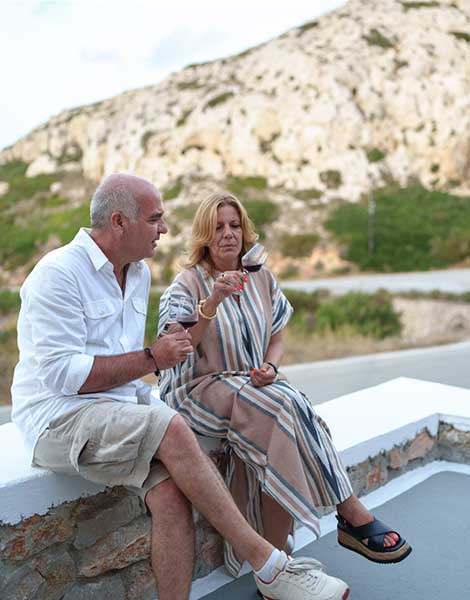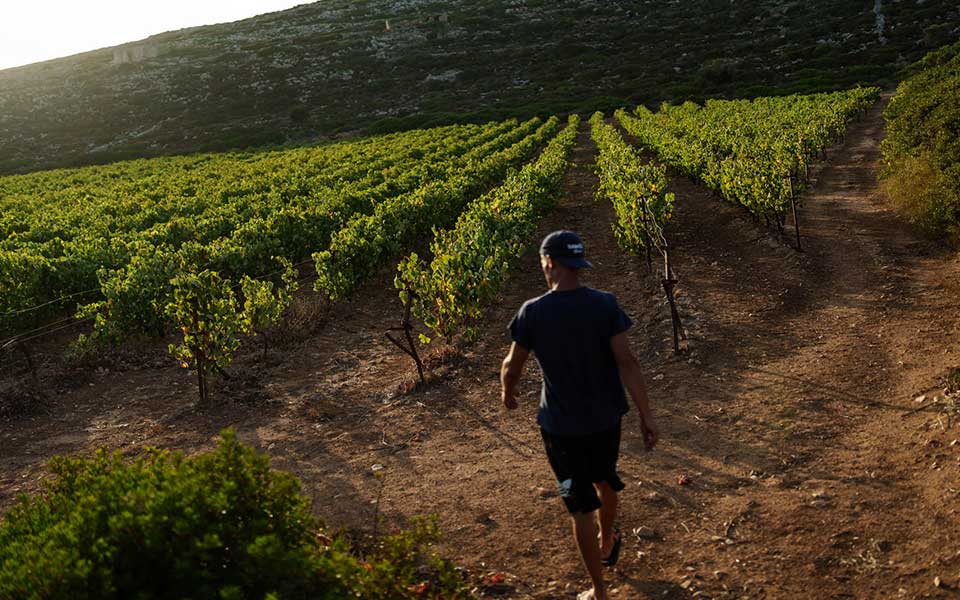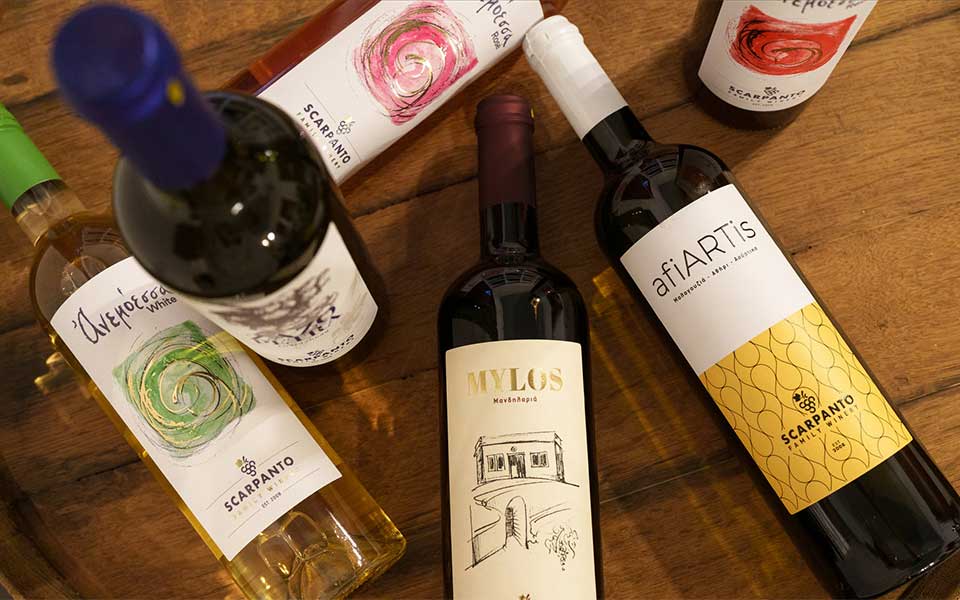Dora Diakoni and Stelios Motakis began toying with the idea of opening a winery on Dora’s native island of Karpathos around 2005, when Stelios saw the first signs of the economic crisis affecting their family business, an olive oil bottling facility in Athens. Stelios, a wine lover since childhood and a member of oenologist Dimitris Chatzinikolaou’s wine tasting team, has many fond memories of his grandfather’s vineyards on Crete. After producing wine from his own vineyards for the first time in 2002, he decided to establish his own eight-hectare vineyard in 2008 with the help of his wife.
Their dream was to revive the varieties of Karpathos and breathe new life into the island’s vineyards, which had been neglected for the previous sixty years, except for a handful at the mountain village of Othos. Dora and Stelios’ vineyard lies just outside the town of Menetes, at the southern end of Karpathos, in a region dotted with small churches such as Aghia Paraskevi and Aghia Triada. “Unfortunately, the vineyard register didn’t allow us to plant Karpathian varieties, so we turned to Aegean grape varieties,” explains Dora. “We planted several varieties, such as Mavrotragano, Mandilaria, Assyrtiko, Aidani, Malagousia and Athiri, as well as some international varieties,” adds Stelios.

© Konstantinos Tsakalidis

© Konstantinos Tsakalidis
The old flour mill
They experimented a lot at first because the conditions were difficult. Fortunately, the vineyard, which is 200–250 meters above sea level and 1.5 kilometers from the coast, benefits from the cool sea breeze that protects it from the heat. It took eleven long years for Dora and Stelios to produce their first wines at a winery on the nearby island of Rhodes. I ask Stelios if it was worth paying so much money to transport the raw materials to Rhodes. “Yes,” he says confidently, with the conviction of a person who believes in what he does, “even though the cost was indeed high, we were eager to get our product out because we didn’t have our own winery and the conditions were favorable.”
That same year, in addition to putting out their first three labels – Afiartis, Zazopetra and Mylos – they rented an abandoned flour mill in order to convert it into a modern winery. Sadly, the covid pandemic drove up building costs and caused a delay in the winery’s completion, but they persevered. They continued to produce their wine in Rhodes until 2021. In the meantime, they released a more commercial range, Anemoessa, because, as Dora explains, “Even though our first wines received very good reviews and were embraced by local businesses, they asked us for something more affordable so that they could keep more of it in stock.”

© Konstantinos Tsakalidis
Only fresh wines
Dora and Stelios have been making and bottling their wines at their own facility for the past two years. Additionally, they are considering submitting an application for a permit that would enable them to welcome visitors to their estate. They’re not concerned that their winery is small, or that they don’t have maturation tanks or barrels or that they don’t currently have enough space for a cellar. They are just happy that they finally managed to establish their own winery, Scarpanto, which means “Karpathos” in Italian. They produce no more than 8,000 bottles a year for the six labels they makeand all their wines are fresh. Because local demand for their wines is high, most of their output is sold in Karpathos; only a few bottles are sent to Rhodes.
The beautiful, stone winery with its white windows is located opposite “Zazopetra,” a rock that inspired the name of one of the estate’s wines. Of the six labels that Dora and Stelios produce, the one that stood out for me the most was Mylos. A robust, fresh Mandilaria wine with a fruity, herbal aroma. A wine that is as bold as their venture: because on an island with only one winery and wine sold on the cheap, where production costs are disproportionately high, success requires deep faith, patience, and hard work.
This article was previously published in Greek at gastronomos.gr.












